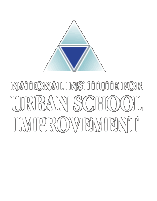
---

---

---

---

---

---

|
 |
 |
NIUSI
part of the Education Reform Networks
Systemic Infrastructure & Organizational Support
-
About Successful Strategies for Involving Migrant Families?
Migrant farm workers and their families are among the most socially marginalized and academically vulnerable populations in the country. They are more at risk of not completing school or missing a good deal of school because of their frequent moves, extreme poverty, health issues related to harsh working conditions in the fields, and social/cultural isolation.
-
Cultural Identity and Teaching
Understanding your own cultural background, and connecting that background to that of the students in your classroom as you explore the connections you have and the different ways you might look at things creates a rich learning environment in which the teacher and students can all participate, be valued, and learn.
Download the document here.
-
Disproportionate Representation in Special Education: A Synthesis and Recommendations.
Summarizes historical perspectives and existing knowledge about disproportionate representation of minority students in special education. Definitions and extent of disproportionate representation; Responses to disproportionate representation; Changes in disproportionality and minority student outcomes.
-
Improving Education: The Promise of Inclusive Schooling
The mission of the National Institute for Urban School Improvement is to partner with RRCS to develop powerful networks of urban LEAS and schools that embrace and implement a
data-based, continuous improvement approach for inclusive practices. Embedded within this approach is a commitment to evidence-based practice in early intervention, universal design,literacy and positive behavior supports.
-
Leadership Academies - Module 1, Building Leadership Teams
The academies in this module promote inclusive systems and schools by coaching Building Leadership Team members in both leadership skills and team collaboration.
download the document here
.
-
Leadership Academies - Module 3, Inclusive Schools
This module introduces the inclusive model of education, which proposes that, with support structures in place, all students are able to successfully learn in the general education classroom. Rather than teach students with special needs separately, general and special educators collaborate to address the needs of all students to allow them to learn together.
-
On Infusing Disability Studies into the General Curriculum
Teachers and administrators are all familiar with the growing movement toward the
inclusion of children with disabilities into general education classrooms. Discussions
about how to do this, with which children, at what ages, and with what
supports and structural reforms are happening in urban school districts across the
country.
-
On the Nexus of Race,Disability, and overrepresentation:What Do We Know?Where Do We Go?
The ethnic overrepresentation of students in special education programs in this
country has been a recognized problem for more than 30 years. Simply defined,
overrepresentation, or the disproportionate placement of students of a given
ethnic group in special education programs, means that the percentage of
students from that group in such programs is disproportionally greater than
their percentage in the school population as a whole.
-
On Time and How to Get More of It
Today�s schools are striving to meet the challenges of systemic reform and school
improvement. It is a big and complicated job.
-
On Transition Services for Youth with Disabilities
Since 1983, the successful transition of youth with disabilities
from secondary schools to work, post secondary
education, and adult roles has been a major national policy
initiative.
Download the doucment here.
-
On Working Together:Groupwork, Teamwork, and Collaborative Work Among Teachers
As schools restructure and reform for the 21st Century, educators are being
required to work together in more and more ways.
Download the document here.
-
Preparing, Recruiting, and Retaining Special Education Personnel in Rural Areas
Nationwide, the shortage of special education teachers is expected to grow, fueled by expanding demand and high teacher attrition rates. The situation in Texas mirrors that of the nation.
-
President's Report to the Board of Directors
This report details the current American Association of Community Colleges (AACC) projects, publications, and legislative activities.
-
Safe Passage: How Philanthropy Is Working Together to Help All of America's Youth Connect by Age 25
Released in July 2006, Safe Passage is the latest publication of the Youth Transition Funders Group (YTFG), a consortium of major philanthropic foundations dedicated to strategic collaboration to address issues of juvenile justice, foster care system reform, and out-of-school/struggling youth. The publication provides examples of solutions implemented across the country that have proven outcomes for youth.
-
Schools on move : Stories of Urban Schools Engaged in Inclusive Journeys of Change(Kepner Middle School in Denver, Colorado)
This story depicts school in the midst of exciting changes and renewal. Through the
voices of parents, students, teachers, and administrators, this School on the Move is
making fundamental and enduring changes in the work of schools and in the results that
such changes make in the lives of children and youth.
-
Schools on move: Stories of Urban Schools Engaged in Inclusive Journeys of Change(JC Nalle Elementary School in Washington, DC).
This story depicts a school in the midst of exciting changes and renewal. Through the
voices of parents, students, teachers, and administrators, this School on the Move is
making fundamental and enduring changes in the work of schools and in the results that
such changes make in the lives of children and youth.
-
The building Leadership team
A Building Leadership Team (BLT) is a school-based group of individuals who work to provide strong organizational process for school renewal and improvement. BLTs orchestrate the work of school professionals, administrators, families, and students through the school improvement process.
-
The Concept of Academic Politeness in a Multicultural University Classroom
This study explored a context-embedded concept of politeness in a discussion-type, multicultural university classroom. The graduate-level class, Language Planning, had 33 students from a variety of cultural backgrounds.
-
To Improve the Academy. Resources for Faculty, Instructional and Organizational Development. Volume 18
The year 2000 volume of this annual publication contains 18 articles on issues relating to organizational change, collaboration and partnerships, and teaching and faculty development in higher education.
-
Understanding Culture
Understanding culture is critical for educators because our individual cultural orientation is present in every interaction. Too often, we make assumptions about a person?s beliefs or behaviors based on a single cultural indicator, particularly race1 or ethnicity, when in reality, our cultural identities are a complex weave of all the cultural groups we belong to that influence our values, beliefs, and behaviors.
|
| |
 |
|





